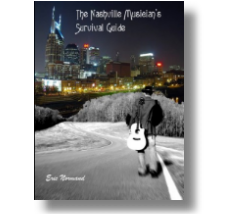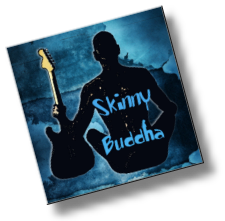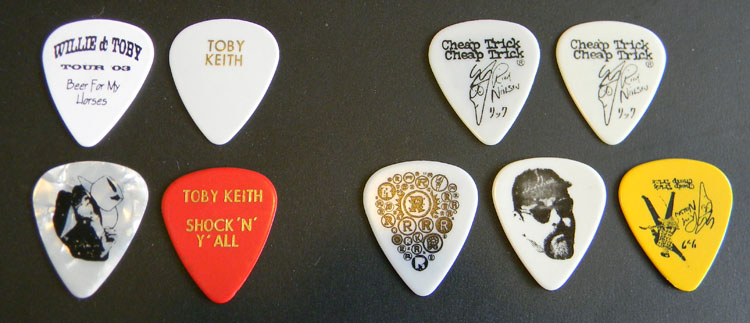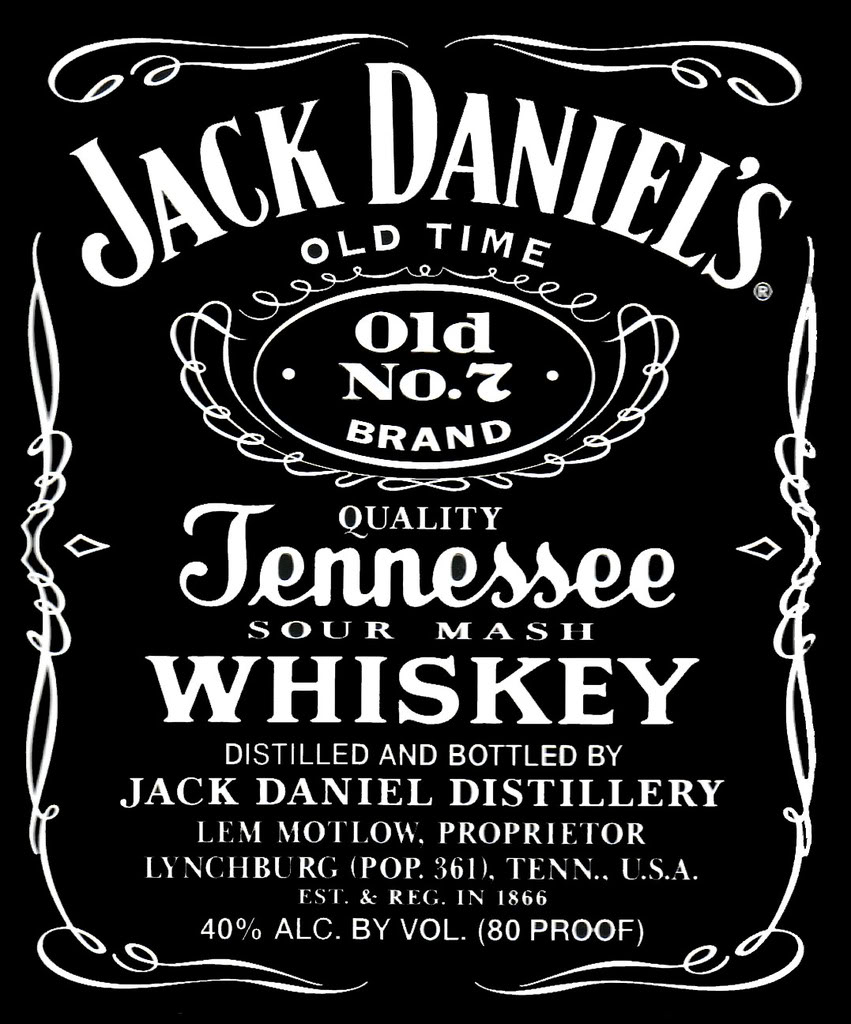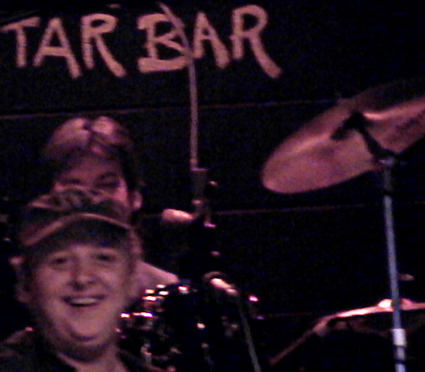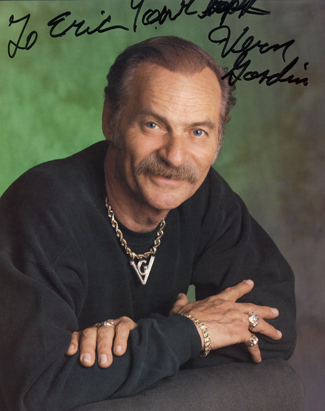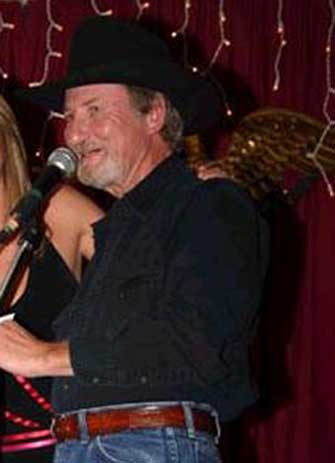
The ever churning music scene of Nashville can be kind of quirky. Even though it has downsized a bit since its heyday of the booming 90s, it’s still a constant flurry of activity, with thousands of musicians of all levels and backgrounds continually searching and on the move. Searching for gigs, connections, opportunities, and quite often, searching for a pathway to a success that has yet to be defined. We’re all on the hunt for something more.
That’s how I felt when I first moved to Nashville, nearly 10 years ago. I didn’t really know exactly what I wanted to do here; I just knew I wanted to accomplish more than I had in my previous life as a nightclub performer and music teacher in New England. I can remember the sense of impatience and anxiety I felt during that first year, the endless thirst for musical activity – no gig was too big or small.
As a fresh arrival in 2002, I knew very little about how this place worked and relied on my friend and mentor “D” to fill in the blanks. “If you are looking for paying gigs, the country scene is where it’s at. It’s pretty much a freelance scene, but that’s where you’ll make the connections you’ll need to survive. Just get out there and start hitting the clubs and get to know people, sit-in whenever you can. But whatever you do, don’t join a band, bands starve.” All sound advice coming from a successful player who had already been here for 10 years.
“I’m really into blues and rock. Is there a scene here for that? I asked innocently. “There is, but you’re going to go broke if you only play that stuff here” was his reply “Plus you’ll get pigeonholed”. “Well if all this activity is basically hired guns, how do you just have a band for fun?” I asked, not wanting to accept this new fate. His solution was so simple – “After you get to know and become friends with some good players, just pick a night, book a gig, and go make some music with your buddies.”
While his advice made a lot of sense, it would take years for me to fully realize this new potential. I began digging in to the scene, networking, sitting in, and this approach worked. I played hundreds of gigs around the city during those first couple of years – Broadway gigs, Printers Alley gigs, gigs on the outskirts, showcases – you name it I played it. These gigs eventually lead to touring work and a couple of years later I began playing on songwriter demos too.
Now it’s 2011 and I’ve been here for nearly 10 years. I can’t believe how fast time flies, the last decade was a blur of endless activity. I didn’t move to Nashville to become a superstar or a songwriter, I came here to work as a player, and I’ve succeeded in that endeavor. I make my living (or the bulk of it) as a freelance musician, something I was not able to do prior to my Nashville days.
But something has still been missing and I just recently figured out what it was. I haven’t been playing music enough for the sheer joy of it. Nearly all of my music career dreams have come true. I’ve played in every state in the lower 48, Canada, parts of Europe; 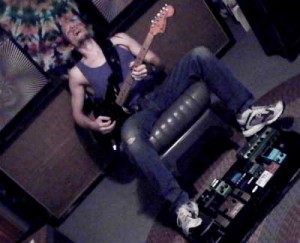 I’ve learned how to play guitar on recording sessions; I’m good friends with some of the finest musicians on the planet; I’m earning a living from my craft. But where’s the self-expression within all of this? Don’t get me wrong, there’s plenty of good music involved in what I do. But a lot of the music I do for pay is the result of somebody else’s expression, and at times, lacking a personal connection to me.
I’ve learned how to play guitar on recording sessions; I’m good friends with some of the finest musicians on the planet; I’m earning a living from my craft. But where’s the self-expression within all of this? Don’t get me wrong, there’s plenty of good music involved in what I do. But a lot of the music I do for pay is the result of somebody else’s expression, and at times, lacking a personal connection to me.
So last fall I finally decided it was time to follow ol’ Ds advice – “Pick a night, book a gig, and go make some music with your buddies.” I’m not sure if it’s just because I’m getting a little older and my priorities are changing, or because working as a freelance musician allows you to be a part of everything, without actually belonging to anything, but making some music for the soul on a regular basis with my friends is now a big priority for me.
While I’m making my living as a hired gun within the country side of this town, I have a new found love for my side project “Endless Boogie”, a band project that has no goal other than to simply provide me and my buddies with a night or two a month of self-expression through fun music. My good friends Fran Breen, drummer extraordinaire originally from Ireland (with the accent to prove it), and Mike Chapman, bad-ass bassist and member of Garth Brooks’ famed session band, the G-Men, were the first players I called for the gig. Even though they’ve both been here far longer than I, perhaps their love of just getting out there and playing is even more telling about working as a career freelance musician long-term.
A few months ago, when we did one of our first gigs at the Fillin’ Station in Kingston Springs, another player that new Mike walked in mid-set. He seemed surprised to see Mike on this “outside the microscope” gig and asked “What are YOU doing here?” Mike’s reply was honest and telling – “I’m playing.”
To me, this simple exchange says it all. What should have been obvious to the other fellow wasn’t. Not every gig has to be about money, prestige, or opportunity. While my buddies and I know the importance of a little music for the soul, it is easy to understand how a lifetime of working in the music industry can change that.
So what are you waiting for?
“Pick a night, book a gig, and go make some music with your buddies.”
Endless Boogie will be playing tonight, Tuesday, January 18 at the 12 South Tap Room, located next to Mafioso’s on 12th Avenue South, Nashville, TN. The show starts at 9 PM and we will be playing some of our favorites from Hendrix, Allmans, Santana, Muddy, and Miles, plus a few of our own. The tap room is one of the coolest “non-Nashville” bars in Nashville and has a great menu, friendly staff, a whole bunch of fancy beers on tap, and never a cover.
12 South Tap Room
2318 12th Ave South
Nashville, TN 37204
615-463-7552
One of the best things about working as a guitar tech on a major tour is that it provides you access to the world’s coolest guitar picks. When working on a high profile tour, there will be many occasions when you will share the bill with other national acts, be it award shows, multi-band festivals, and so on. As many artists and band members on this level get their own personalized custom picks by the gross, and their guitar tech is usually in charge of ordering and dispersing these picks, it’s only par for the course that the tech will have many opportunities to do a little pick trading with other techs and musicians.
During my time working as a guitar tech for Toby Keith, I came into possession of some real prizes. When we did a handful of shows with Willie Nelson, I traded some Toby picks with Willie’s tech and got a Farm Aid pick and a “Willie and The Dead – 30th 4th of July Picnic” pick, a couple of unique rarities. Somewhere along the way I met a tech who had worked with the Allman Brothers, and 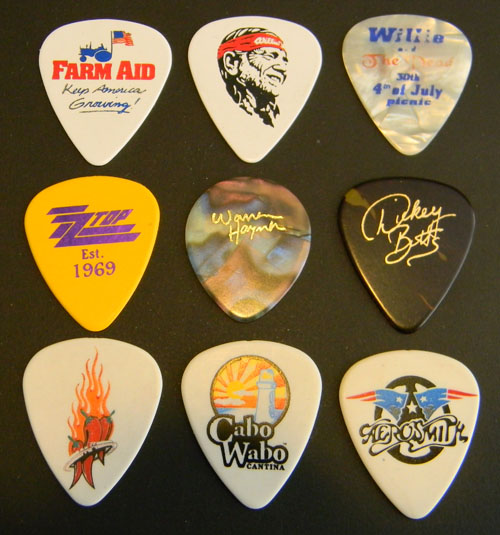 wound up with picks from Warren Haynes and Dickey Betts, two of my favorite guitarists. A few more standouts would be a Sammy Hagar “Cabo Wabo” pick, a Michael Anthony pick, and a rare Aerosmith/New England Patriots Commemorative Super Bowl pick.
wound up with picks from Warren Haynes and Dickey Betts, two of my favorite guitarists. A few more standouts would be a Sammy Hagar “Cabo Wabo” pick, a Michael Anthony pick, and a rare Aerosmith/New England Patriots Commemorative Super Bowl pick.
Pick trading among techs is common practice and a tradition that goes way back. Some acts and techs are very laid back about their guitar picks, and often will just give you one if you are working on one of these tours and simply ask. Other tours and techs might employ a stricter rule regarding the handing out or trading of picks, only doing so sparingly, or not at all. On the Toby Tour during my tenure, the pick policy was somewhat laid-back, so trading a few picks when a good opportunity presented itself was not frowned upon.
Sometime in the fall of 2003 the tour came to an indoor sports arena somewhere in Illinois. It was just after dinner time when I returned backstage to guitar world for my preshow tuning duties. I had just barely started to dig in when a tall and lanky fellow dressed in a flamboyant outfit approached me. “Hi, Rick Nielsen of Cheap Trick here. I just want to check out what you got.” It was kind of dark in the arena at this point, and I was a bit startled by this stark introduction that seemed to come out of nowhere. “I’m Eric, Toby’s guitar tech. Good to meet you.” I said as we shook hands. He briefly mentioned something about being a part owner of the hockey team that played in the arena, as well as being one of the owners of the arena itself, before taking a brief guided tour of our 22 guitars and basses. He seemed curious, but not overly impressed, which comes to no surprise as I had read that his collection of guitars once contained around 2000.
His demeanor was a little quirky, and his short bursts of fast-paced dialogue continued to keep me on edge. “Got any picks?” he asked out of the blue. “Yes, we sure do.” I answered. “Wanna do a little trade? How about 10 for 10?” he asked briskly. This was beginning to feel like some sort of back alley drug deal. “Sure, step on over to my guitar work box” I replied beginning to rummage through the drawers. Before I could even grab one pick from each of Toby’s collection for the trade, he had placed his picks on top of the work table. “Here you go.” I said a minute later handing him the picks. Not but a few seconds later he barked out in an almost accusatory tone “Hey, there’s only 7 here. I gave you 10. What are you trying to do?” and with this I began to have visions of buying a watch from some guy wearing an overcoat in an alleyway. “Oops, sorry. I didn’t realize you were actually counting” I awkwardly confessed, and reached into the draw for a few more picks. “Thanks.” He stated bluntly, and the picks were no sooner in his hand before he had disappeared from sight around the corner, into the blackness of the night.
Before this night I had traded a lot of picks, but none of my previous “deals” held this kind of weight, this was a first. Most techs don’t take their pick trading as seriously as this fellow did. This guy knew what he wanted, and he knew how to get it. You’ve got to respect that. He drove a hard bargain, and I have the picks to prove it!
It was a couple of months into my new gig as guitar tech on the Toby Keith tour and things were going pretty well. I was getting used to this new world of touring life, had become accepted by the band and crew, and had my job down pat. Or so I thought.
This fast-paced tour was a whirlwind and most days were a blur. We were playing 20 to 30,000 seat arenas and sheds in 4 to 5 major cities a week and most shows were sold out. My job as guitar tech required me to have 22 guitars and basses (plus one fiddle) in tune, polished, and in perfect working order for each show. I was also responsible for the pedal steel guitar, the keyboard rig, the backline (excluding drums), a few pedal boards, and Chuck’s (Toby’s bass player and band leader) infamous MIDI pedal.
So that was the gig, make sure the gear was ready for the sound check and show, assist a few guitar swaps during the concert, and make sure all the gear made it safely onto the truck each night. The job was quite stressful, as I was responsible for maneuvering all of this expensive and delicate gear, much of which held sentimental value to the players, through a sea of crew members, stagehands, and thousand pound road cases, each day in a noisy and unfamiliar concert arena. In other words, total chaos.
So you can begin to understand how someone could lose one itty-bitty MIDI pedal within all of this chaos.
The tour was like the movie, Groundhog Day. Each day I would awake in my bunk, walk to the front lounge of the bus, and look out the window to a view of the back side of a generic concrete and steel structure. After getting dressed and going into catering for breakfast, I would patiently await a call over my two-way radio alerting me it was time to load-in my truck. After overseeing the stagehands load my backline and “guitar cart” to some temporary location inside the arena, I would set up an out of the way workstation and begin restringing guitars.
Before I could begin the next phase of my work, the placement and set-up of the backline on the deck, pretty much everything else had to be in place. The video wall had to be erected and flown, followed by the lighting truss and speaker towers, the Ford F150 truck/prop and its hydraulic “Dolly”, and then the large set wall would finally be constructed, the entire process usually taking several hours.
On this particular day it was sometime just after lunch when my gear was fork lifted onto the deck. After a couple of stagehands assisted me in lifting the Hammond organ up onto the keyboard riser, I began taking the lids off of the racks and speaker cabinets behind the set wall. A little while later I had finished wiring the rigs and began placing and wiring the pedal boards. After placing Rich and Joey’s boards out on the deck, I returned to my guitar work box for Chuck’s MIDI pedal, only to be horrified upon opening the empty draw it was usually stored in.
OH NO!
I began searching through the other drawers of the work box and found it nowhere in sight. I asked Earl, the monitor engineer, if he had seen it, and he said he hadn’t. I began a systematic search for it, looking through every road case within sight (in reality, I probably looked more like a crazed drug addict searching for his missing dope). Finally, in the midst of my frantic behavior (which was now beginning to alarm some of my fellow crew members), one of the lighting guys, a spirited fellow that everyone called “Convict”, spoke up. “Are you missing something?” I answered “Yeah, I can’t find Chuck’s MIDI pedal”. “Oh” he replied, with the slightest hint of sarcasm “Maybe you left it behind last night, I’ll check with the other lighting guys.”
I sensed that I was being had, but as I was still the new guy on the tour, I wasn’t quite sure. A few minutes later, my panic now escalating, I asked one of the other audio guys if he had seen it. “Why don’t you ask Convict?” was the reply, and I now realized that I was officially being toyed with. I went back to 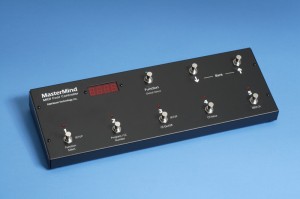 lighting world or “Dimmer Beach” as we called it, and again spoke with Convict. “Are you sure you haven’t seen the MIDI pedal?” I desperately asked. “What’s it look like?” he chided. “It’s black, about a foot long, and has some buttons on top.” “I might know where it is, but it’s going to cost you.” He stated matter-of-factly. “What’s it going to cost?” I asked, my frustration beginning to grow. “One bottle of Jack Daniels” was his playful response. “You’re holding the MIDI pedal ransom for a bottle of booze? That’s not fair.” “I guess it’s not that important to you.” he said, and then walked off.
lighting world or “Dimmer Beach” as we called it, and again spoke with Convict. “Are you sure you haven’t seen the MIDI pedal?” I desperately asked. “What’s it look like?” he chided. “It’s black, about a foot long, and has some buttons on top.” “I might know where it is, but it’s going to cost you.” He stated matter-of-factly. “What’s it going to cost?” I asked, my frustration beginning to grow. “One bottle of Jack Daniels” was his playful response. “You’re holding the MIDI pedal ransom for a bottle of booze? That’s not fair.” “I guess it’s not that important to you.” he said, and then walked off.
Furious, I stormed off and found Dave, the road manager, to complain about this obviously unfair play. After telling him my story in great detail, he replied by stating what by now should have been obvious to me “Well then, I guess you better buy him a bottle of Jack!”. “That’s not right.” I begged. “What do you want me to do, I didn’t lose the pedal.” he replied dismissively. And with that I started walking off to again confront Convict. Before I was completely out of the room, he added “When you’re ready, give me some cash and I’ll send a runner to go buy a bottle.” As I continued down the hall I swear I could’ve heard subdued laughter coming from the production office I had just left.
I made one last feeble attempt at convincing Convict that the right thing to do was to just hand over the pedal, but he wouldn’t budge. No one was coming to my aid, and it seemed inevitable that I would need to give in to this would-be extortion. Out of time, with sound check now fast approaching, I went back to Convict with my tail between my legs. “Okay, I’ll get you a bottle of Jack.” And with that, he opened a nearby road case and handed me the pedal.
I did have sour grapes about this for a few days but managed to get over it. In hindsight, Convict had done a huge favor for me by grabbing the pedal. It wasn’t his responsibility and he could have just left it there on the arena floor, and that would have made my life much more difficult. I never did completely figure out if this whole thing was some sort of weird initiation for the new guy, or a lesson to teach me the importance of making sure all of my gear was accounted for before quitting for the day. Needless to say, that was the first and last time that I would ever forget to pack up Chuck’s MIDI pedal (or any other piece of gear for that matter).
Epilogue: A few days later, Convict invited me onto his bus for what was obviously some kind of peace offering – a toast to Chuck’s MIDI pedal with shot of Jack Daniels!
It was a hot summer night in July of 2003, and I was hanging out at the Fiddle and Steel, when my good friend, Dave McAfee, told me that there was a job opening up on the Toby Keith tour. The position was for that of guitar tech, and Dave, who had been with Toby since the early days, felt that he could make it happen if I was interested.
“I know you came here to work as a player, but I think you could gain some good experience working on this tour for a while.” he said. I had been in Nashville for a year and, despite having built up some steady in-town gigs, was ready to take this next step. “I could definitely use the experience of working on a major tour, not to mention some real income, but I don’t have any experience working as a tech.” I responded. “Don’t worry about that, the job is mainly restringing and tuning guitars, and taking care of backline. They’ll teach you everything you need to know.” He said. “Okay, count me in! When do we leave?”
The next step was a brief phone call the following day with Toby’s tour manager, Sean Sargent. Based solely on my commitment to work hard and my obvious hunger for the position, and of course the good word Dave had already put in for me, I was hired. I was now about to officially become a “road dog”. I had no idea whatsoever what I was in for.
To give a little perspective here, prior to landing this gig with Toby, the most extensive touring I had done was a couple weekend outings with Vern Gosdin and BB Watson, basically one-offs within 500 miles of Nashville with 8 to 10 people traveling on one bus, our backline stowed in bays underneath. The Toby tour that year, dubbed the title “Shock’n Y’all”, touted an entourage of 50 plus band and crew members, traveling by six buses, and carrying full production in six semis.
My virgin outing with this mega tour was a doozy of a trip. We were scheduled to play in Cheyenne, Wyoming on Saturday, July 19; Harrington, Delaware on Monday, July 21, and then returning to Nashville for a few days before departing for Toronto, Ontario. This is what is known in the touring industry as “deadheading”, or in the country music industry as the “dartboard tour”, meaning that some of these runs seemed so illogical that you might as well throw darts at a map on the wall to determine the routing.
Here’s what my first five weeks of working on this tour looked like:
07/19/03 Cheyenne, WY Frontier Days
07/21/03 Harrington, DE Delaware State Fair
07/23/03 Paso Robles, CA California Mid-State Fair (fly date)
07/25/03 Toronto, ON To Be Announced
07/26/03 Ottawa, ON Corel Centre
08/01/03 Maryland Heights, MO UMB Bank Pavilion
08/02/03 Tinley Park, IL Tweeter Center
08/03/03 Bonner Springs, KS Verizon Wireless Amphitheater
08/07/03 Pelham, AL Oak Mountain Amph.
08/08/03 Charlotte, NC Verizon Wireless Amp. Charlotte
08/09/03 Raleigh, NC Alltel Pavilion @ Walnut Creek
08/14/03 Corpus Christi, TX Concrete Street Amphitheatre
08/16/03 Selma, TX Verizon Wireless Amphitheatre
08/19/03 Meadville, PA Crawford County Fair
08/22/03 Albuquerque, NM Journal Pavilion
08/23/03 Phoenix, AZ Cricket Pavilion
08/24/03 Los Angeles, CA Staples Center
08/28/03 San Diego, CA Coors Ampitheatre
08/29/03 Las Vegas, NV MGM Grand
08/30/03 Mountain View, CA Shoreline Amphitheatre
08/31/03 Kelseyville, CA Konocti Harbor Resort & Spa
I quickly learned that I was going to be gone a lot and living on the road with my new “family”. Realizing that my in town gigging was about to grind to a halt, I decided to buy a “zoom” style guitar unit so I could practice my guitar via headphones on the bus to keep my chops up. I also had a laptop, a video camera, headset for my cell phone; I was totally geaked out and ready to “embrace the road”.
With good intentions, but totally green behind the ears, I said goodbye to my wife, Kelly, and set out for the bus at 7:00 AM on a Friday morning. Still not completely familiar with Nashville, I got lost on the way to the bus and called my wife in a panic for a little help with MapQuest. She set me straight and I arrived to a Kroger parking lot in Hermitage at about 7:30. There were several buses parked together and, not knowing a soul other than Dave, I introduced myself to the first person I saw and told him I was looking for the “audio crew bus”. “That’s the bus I’m on too, the blue one right over there. You must be Eric? I’m Marty.” he said. “The bottom front passenger’s side bunk is available, or you could take one of the top two junk bunks.” “Junk bunks?” I asked. “Those are the empty bunks that we can use for luggage.” he answered, my greenness showing already.
Nashville to Cheyenne, Wyoming is 1200 miles, or about a 22 hour bus ride with a few stops. Wyoming to Delaware was another 1800 miles, or close to 40 hours with stops. So while I was loading my luggage, laptop, box of food, guitar, and briefcase full of practice equipment, the other guys were all making a food run into the nearby supermarket to stock up. It was at this moment that I committed my first bus foul (albeit unknowingly), and took a big ole’ dump in the bus bathroom. The few bus trips I had previously made with BB and Vern were so short, that as chance would have it, I never had to use the bathroom, and no one on those runs had informed me of the “no poop” rule enforced on most of these buses. The reason for this rule (as I would later learn) is that anything other than peeing on a bus requires a much higher level of daily water and septic maintenance, so most tours instill this rule to save time, money, and to prevent the interiors of the buses from smelling like a sewer hole.
A few minutes later the rest of the crew returned and we set out for Cheyenne. A little while later “Pork Chop”, one of the audio guys, used the bathroom, and when he reentered the front lounge exclaimed “Did somebody shit in there?” I instantly felt a sinking feeling in my stomach but instinctively chose to just sit there and say nothing, staring straight ahead, kind of like the scene in “A Christmas Story” in which Ralphie and his cohorts play dumb when Flick gets his tongue stuck to the frozen flagpole. As I was just making the acquaintance of these folks and trying to make a good impression, I didn’t want to admit to being so utterly clueless. I’m pretty sure that they suspected it was me anyway.
Most of these buses have a small table in the front lounge, with a small bench seat on either side, basically enough room to seat two people somewhat comfortably. A little later in the day I decided to practice some guitar, and brought my stuff out to the front lounge. I sat down at the table and proceeded to take over the small space, spreading out my electronic gadgetry, music books, and guitar gear. For an hour so, I sat there playing guitar with headphones on, finding it somewhat difficult to do this in such a confined space. If I had ever bothered to look up, I’m sure I would’ve received some annoying looks from some of the other crew members, all of whom were veterans of the road.
After a while, I got up and went to go sit in the co-pilot seat next to the driver for a few, and this would be when I committed my second bus etiquette offence. Not yet realizing that seating and table space are considered prime real estate on a bus, I left my guitar and gadgetry strewn all over the table and seat. So when I returned a little while later, I was confused to see the table cleared and my stuff nowhere in sight. Apparently, somebody had moved it all to my bunk.
“I wasn’t done practicing yet.” I stated to a front lounge full of glaring eyes. “Yeah you are, you left that stuff there for an hour.” “Oh, I didn’t know you can’t leave stuff out in the lounge.” I said apologetically, beginning to feel like a real dork. “Oops. Sorry guys.”
This is not how I wanted my introduction to the Toby Tour to begin, but it was too late, like they say, there’s no such thing as a second first impression. In time, I would get the hang of how to live with others on a bus, the importance of not taking up too much space, and the communal approach one must take to live on a tour. But at this moment we were only a few hours into a trip that would span 4000 miles over five days, and my new comrades weren’t exactly taking a quick liking to me. Not to mention the interior of the bus was now starting to smell kind of foul from my first debacle.
It was going to be a long ride.
Ask any musician or songwriter that’s been in Nashville for a while if they’ve ever heard of, or been to the Fiddle and Steel and most will  say yes, for sure. The Fiddle and Steel Guitar Bar, aptly dubbed “The Steel”, is located in historic Printer’s Alley off of Church Street and has been a staple of the Nashville nightclub scene since 1996. This homey, rustic club, often referred to as “the cheers” bar of Music City, is a place where musicians, artists, tourists, and locals gather to enjoy great music, see old friends, and make new ones. The Steel has also been a launching pad for some of the biggest artists in country music today, including Rascal Flatts, Eric Church, and many others.
say yes, for sure. The Fiddle and Steel Guitar Bar, aptly dubbed “The Steel”, is located in historic Printer’s Alley off of Church Street and has been a staple of the Nashville nightclub scene since 1996. This homey, rustic club, often referred to as “the cheers” bar of Music City, is a place where musicians, artists, tourists, and locals gather to enjoy great music, see old friends, and make new ones. The Steel has also been a launching pad for some of the biggest artists in country music today, including Rascal Flatts, Eric Church, and many others.
To many musicians working within the Nashville music industry, the Steel is a special place, kind of a home away from home. The club’s owner, Alison Bradsher, takes great pride in creating a vibe that is comfortable and relevant to music industry types, while still appealing to locals and tourists. The club has a decent PA system and one of the best sounding stages in the city, making it a desirable room in which to perform. In line with the clubs friendly nature, guest musicians and singers sit in regularly with the house bands, a tradition that dates back to the clubs earliest years.
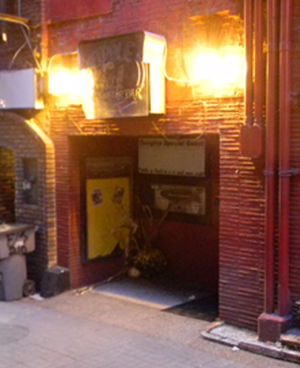 Over the years, many Nashville players and artists have established friendships and relationships at the Steel that have helped their careers, often leading to other gigs, touring and recording work, kind of a “gateway club” for some. So it’s no wonder that a couple of visits to the Steel by my wife and I during our “Nashville field trip” in 2002 helped prompt us to move here in the first place.
Over the years, many Nashville players and artists have established friendships and relationships at the Steel that have helped their careers, often leading to other gigs, touring and recording work, kind of a “gateway club” for some. So it’s no wonder that a couple of visits to the Steel by my wife and I during our “Nashville field trip” in 2002 helped prompt us to move here in the first place.
During my first year in Nashville we were pretty steady regulars at the Steel, hardly missing any of the Tuesday night jams hosted by Ronnie Pittman, and frequenting the club as often as we could. By September of that year I was gigging regularly with Ronnie on Mondays at the Second Fiddle on Broadway while playing in Kentucky on the weekends, and it was during this time that I first met Frank Taylor, a talented singer and songwriter who frequented the Steel quite a bit back then. A deep-rooted part of the club’s fabric, Frank was one of the very first singers to ever perform at the Steel, and whenever he was around; his presence only seemed to further enhance the charm of the place.
So when he asked me if I would be interested in playing guitar for him at his regular Saturday night gig there, of course I said yes. He’s a great singer and audiences related to him, the club was a great hang, and I was ready to take the next step in my Nashville evolution – pretty much a 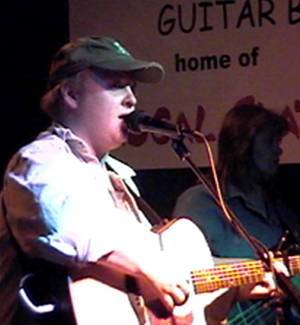 no-brainer. So I gave notice to my house gig in Kentucky and started playing every Saturday night at the Steel.
no-brainer. So I gave notice to my house gig in Kentucky and started playing every Saturday night at the Steel.
I’m not sure how this lineup came to be, but our band consisted of Frank on lead vocals and acoustic, Jack Gavin on drums, Brenda Clarke on bass and vocals, Steve Poole on keys, and me on electric guitar and vocals. It was a great lineup, we gelled well. Every Saturday night I would park in a nearby parking garage and wheel my gear down the old cobblestone street of Printers Alley, past the Bourbon Street Blues and Boogie Bar, and into the Steel. Every gig was an adventure, you never knew who might show up or what we might attempt, so I was genuinely excited to 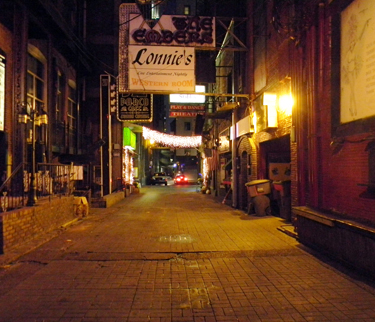 play.
play.
Frank isn’t the typical country singer; he has a unique angelic quality to his voice – soothing, soulful, yet compelling and almost hypnotic. He sang songs by artists like Vince Gill, Delbert McClinton, the Eagles, Jimmy Buffett, CCR, all of course with his own spin. He could make you laugh too. At least once a night he would say something like “Kelly’s coming around with the tip jar, and this is how we make our living in Nashville. If you could just spare a few dollars, I’ll be able to pick up some Krystal burgers for my daughter on the way home. Please throw in some money so I can feed her, she hasn’t eaten all day.” This was especially funny to anyone who knew Frank, as he didn’t even have a daughter.
Frank genuinely enjoyed singing and entertaining and this feeling was infectious, usually spilling over into the other players, the crowd, and the staff. After playing a good long hour or so for our first set we would take a break, and then, during the second set, we would get up any players and singers that wanted to sit in. The guests could range from some young aspiring singer on vacation from out of town, to touring musicians on hiatus, to artists like Joe Nichols or Toby Keith. Even the occasional tourist who wanted to sing Margaritaville was welcome on our stage (although most of the tourists had no business performing anywhere other than in a karaoke setting).
So that’s how I spent my Saturday nights for quite a while. We never had a rehearsal and didn’t really hang out together outside of these 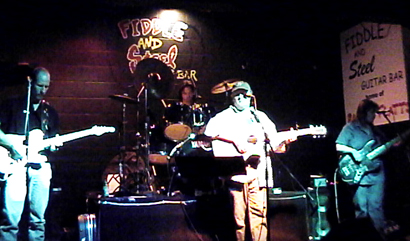 gigs, but we were a unit. By the time a couple of months had passed, this band was tight! Sometimes one of us would have to sub out our gig for something more lucrative, and eventually a couple of the other players moved on, but for a while, this lineup held together. And while I wasn’t making a lot of money, I was having tons of fun, gaining experience, and making contacts. By the middle of the summer of 2003 I was offered a road gig that I couldn’t turn down, and had to give Frank my notice. Ironically, the road gig came about through a friendship I had made at the Steel.
gigs, but we were a unit. By the time a couple of months had passed, this band was tight! Sometimes one of us would have to sub out our gig for something more lucrative, and eventually a couple of the other players moved on, but for a while, this lineup held together. And while I wasn’t making a lot of money, I was having tons of fun, gaining experience, and making contacts. By the middle of the summer of 2003 I was offered a road gig that I couldn’t turn down, and had to give Frank my notice. Ironically, the road gig came about through a friendship I had made at the Steel.
Looking back, those seven or eight months I spent at the Steel with Frank and the gang were among some of the best times I’ve had in Nashville. We may have all been on our own separate paths, searching for the next big gig, publishing deal, or connection, but once a week our paths crossed and we came together to play music and forget about our life struggles. Time stood still at the Steel on those nights and it seemed like those moments would last forever. Since those days, everyone that was in that band has moved on to different gigs. Isn’t it funny how life’s circumstances bring people together for a common purpose only to eventually spread us apart again like ash strewn to the wind. Even though I haven’t seen or spoken to some of my comrades at the Steel since those days, I’ll always have great memories of those times. For me, that’s what a great night club experience, or life for that matter, is all about – sharing good music and fun times with good friends, even if only for a brief moment. Thanks Frankie!
Having grown up in the Northeast on a diet of rock and blues, and listening to very little country music prior to moving to Nashville, the name Vern Gosdin was not one I was familiar with. So when I got a late-night phone call in the fall of 2002 about playing a show with him, my initial reaction may have been somewhat muted. The call came from a producer named Kenny whom I had met a few weeks earlier at my house gig at Libby’s. He described the show as being a one-off with Vern to somewhere in Kentucky and asked me if I could put together and rehearse a band. Hungry for work, I accepted the show and began making calls to recruit players the next day.
One of the first calls I made was to D for some advice. “Vern Gosdin! Do you realize who he is?” he replied in amazement. “Well I know he had some success a few years back.” I replied unknowingly. “They call him ‘the voice’ of country. It’s like getting a gig with Merle Haggard. I’ve been here 10 years and I’ve never got to play with him.” a hint of jealousy riddled his voice. “He’s a real legend. This will be a great experience for you.”
D’s excited reaction prompted a little further investigation, which of course revealed that ole Vern was sure enough a bona fide superstar. 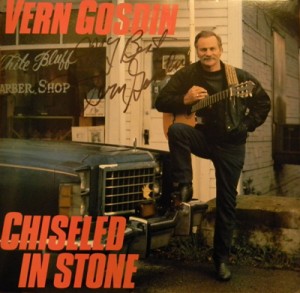 In a career that spanned over four decades, he had recorded somewhere around 20 albums yielding roughly the same number of top 10 hits. Now I began to get a little nervous. Always up for a good challenge, I began calling some of the better players I had met over the past couple of months. The role of a bandleader in Nashville, I quickly learned, puts one in the unique position of being able to offer work to other players, and in Nashville, work is something there is never enough of. Once people know you’re a bandleader, phone calls start getting returned with more expediency and other musicians seem to have more interest in you when you walk into a room (of course when things go wrong, you will be the first one everyone looks to).
In a career that spanned over four decades, he had recorded somewhere around 20 albums yielding roughly the same number of top 10 hits. Now I began to get a little nervous. Always up for a good challenge, I began calling some of the better players I had met over the past couple of months. The role of a bandleader in Nashville, I quickly learned, puts one in the unique position of being able to offer work to other players, and in Nashville, work is something there is never enough of. Once people know you’re a bandleader, phone calls start getting returned with more expediency and other musicians seem to have more interest in you when you walk into a room (of course when things go wrong, you will be the first one everyone looks to).
Within a few days I had put together a five piece band of the best players I could find consisting of Chip on drums, Sid on bass, Mark on keys, Brian on steel, and me on guitar. I obtained recordings of Vern’s material from his assistant, charted the songs, and dispersed these materials to the other players. As the show date grew closer, Vern’s assistant notified me that one rehearsal would be required the week of the show. I also learned that we would need to provide transportation for Vern to and from the rehearsal, as he no longer drove.
On the day of the rehearsal, a couple of the band guys that lived close to Vern’s home near Opryland stopped by to pick him up. My only encounter with Vern up to this point had been one brief phone call, and our discussion was so brief that I still had yet to gain a real sense of the man. Over the weeks leading up to this rehearsal I had begun hearing a few horror stories about Vern. Apparently, he had a penchant for firing drummers, at least according to the rumors, and had a reputation of being quite “ornery” from time to time. He had even been known to pull a gun on a few unsuspecting musicians over the years, supposedly.
This was not the Vern that I would meet later on that night. For into my house walked one of the kindest, sweetest fellows you could ever meet. He had a sense of humor too, as we all learned when I was the butt of his first joke on this night. “How are you feeling today?” he asked. “Great, thanks.” I replied. “Well it’s a good thing that you don’t feel like you look.” he responded as muted chuckles engulfed the room. This kind of dry humor was apparently typical for Vern as I would later learn.
I had rearranged my basement music room to accommodate this band rehearsal, and the limited space was quickly filled with gear and bodies. Once the gear was up and running, our rehearsal began. Another thing that I would later learn was that Vern had suffered a stroke in recent years, and this often impeded his communicative ability. Several songs were stopped short when he needed to convey different musical ideas – signature licks, key changes, intros, endings – he couldn’t always communicate exactly what he was thinking, but it became obvious that he knew his music well, and that he knew when something wasn’t being played right.
We did our best to make his songs feel right to him, and although the mood of this night was fairly upbeat, the rehearsal wound up being shorter than optimum for us, and longer than optimum for Vern. He was getting tired and called the night before we could get through all of the material, rendering it essential that the band be extra prepared for the gig.
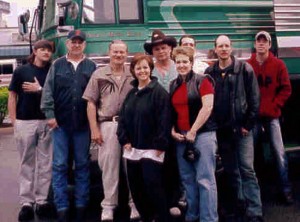 A few days later we all met at Fiddlers Inn near Opryland and hopped on a bus bound for a show in Kentucky. We rode the bus for a few hours before arriving at our gig where we loaded in, sound checked, and ran a few tunes. We did two shows that night in a midsized venue that was reminiscent of an old church out of yesteryear. The two sets were night and day by comparison, the first being quite bad as Vern was feeling a bit under the weather. We did our best to hold it together behind him, but it was a struggle. After a long break, during which Vern got some food and rest, we hit the stage again for our second and final show. Vern, now feeling much better, performed brilliantly. His sweet, resonant voice conveying a wide spectrum of emotions, I could now hear why he had been deemed “the voice” by so many. This strong vocal performance made it effortless for the band to follow him – We were on! The show ended to a strong applause and a room full of smiles. We had done what we had set out to do, and were on our way home.
A few days later we all met at Fiddlers Inn near Opryland and hopped on a bus bound for a show in Kentucky. We rode the bus for a few hours before arriving at our gig where we loaded in, sound checked, and ran a few tunes. We did two shows that night in a midsized venue that was reminiscent of an old church out of yesteryear. The two sets were night and day by comparison, the first being quite bad as Vern was feeling a bit under the weather. We did our best to hold it together behind him, but it was a struggle. After a long break, during which Vern got some food and rest, we hit the stage again for our second and final show. Vern, now feeling much better, performed brilliantly. His sweet, resonant voice conveying a wide spectrum of emotions, I could now hear why he had been deemed “the voice” by so many. This strong vocal performance made it effortless for the band to follow him – We were on! The show ended to a strong applause and a room full of smiles. We had done what we had set out to do, and were on our way home.
Over the next year I played a handful of dates with Vern, and remained as bandleader and guitarist through my tenure with him. About a year later I started working on a busy tour and could no longer do Vern’s dates. But during that time we had become good friends, and years later he still called me from time to time to say hi. He had a handful of jokes that weren’t particularly funny, that somehow made me laugh anyway. I would be walking around a supermarket or Wal-Mart and the phone would ring – “Hey son, it’s Vern, I’ve got to ask you something. Do you hear that sound?” “What is it?” I would ask. “It’s the sound of my boot hittin’ your ass!”
He would literally start out every conversation with a joke like this, and I would laugh every single time. Around 2008 I was fortunate enough to have a schedule that would allow me to do a few more shows with him. Then I heard the sad news in April of 2009 that he had died from complications due to another stroke. “The Voice” of country may have moved on, but his musical legacy remains a timeless testament to his greatness. And the Vern that I grew to know and love will always hold a special place in my heart. Even though I know he won’t be calling any time soon, I still keep his number in my cell phone, just in case.
It was sometime in the fall of 2002 and my wife, Kelly and I were attending our weekly Tuesday night outing at the Fiddle and Steel. Already having sat-in earlier in the night, we were getting ready to leave as it was getting kind of late, when Ronnie Pittman, the singer and host of this unofficial jam night, approached us at the bar. “Hey man, I need a guitar player to play some Monday nights with me at the Second Fiddle. Are you interested?” he asked. “I’d love to, thanks for asking.” I replied, further adding “One thing I should tell you upfront is that I’m not totally up on all the old country stuff yet.” “That’s no problem; we don’t do that many old country tunes. And besides, the last thing I need is another guitar player that constantly plays ‘dubadibby dabaduboo dubadibby dabaduboo’.” he explained, mimicking a cliché sounding rapid-fire guitar lick. “Great, I’m there!” I exclaimed.
The following Monday I arrived early to the Second Fiddle on Broadway, double parked to load in my gear, and then drove around for 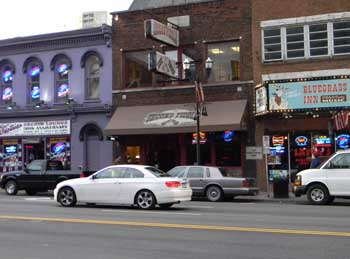 about 20 minutes looking for a free parking space. After setting up my stuff and hanging for a bit with Ronnie and the band, our night of music began. Ronnie played a mix of contemporary country ranging from Travis Tritt to Little Texas, some 80s and 90s country/pop from groups like Exile, a few old school country tunes, R&B from the likes of Delbert McClinton and Van Morrison, and some classic rock from groups like the Eagles, the Allman Brothers, and Steve Miller. His wife also sang harmony and lead vocals and fronted the band on a few songs by artists like Martina McBride and the Dixie Chicks.
about 20 minutes looking for a free parking space. After setting up my stuff and hanging for a bit with Ronnie and the band, our night of music began. Ronnie played a mix of contemporary country ranging from Travis Tritt to Little Texas, some 80s and 90s country/pop from groups like Exile, a few old school country tunes, R&B from the likes of Delbert McClinton and Van Morrison, and some classic rock from groups like the Eagles, the Allman Brothers, and Steve Miller. His wife also sang harmony and lead vocals and fronted the band on a few songs by artists like Martina McBride and the Dixie Chicks.
I knew a lot of the material and managed to feel my way through the songs I didn’t know. We played a couple of long sets with a break in the middle and, although people wandered in and out of the club all night, I don’t think the crowd ever got above 15 or 20. Nevertheless, the music was enjoyable and we all had a good time playing. At the end of the night I tore down my gear and waited for Ronnie to count the tips (I think the grand total was something like $28 apiece including the base pay of $20 each). The short pay was all right with me, as I was still trying to gain experience and make connections. Ronnie thanked me and asked me if I wanted to play the following Monday, which of course I did, and told him so.
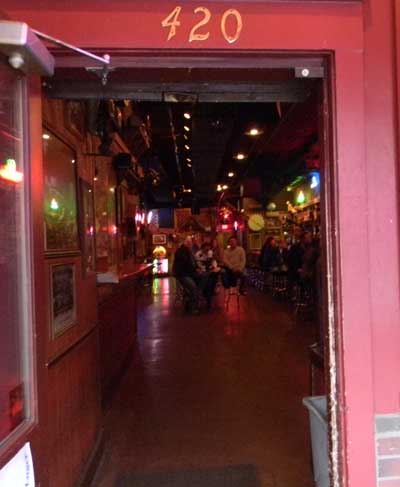 So this became my first regular in town gig. And it was perfect. Ronnie was a real laid-back singer to work for, he always had a decent rhythm section, and his repertoire consisted of a lot of pop, rock, and R&B; styles I was already familiar with. He did play just enough contemporary and classic country for me to explore my new chops in that area as well.
So this became my first regular in town gig. And it was perfect. Ronnie was a real laid-back singer to work for, he always had a decent rhythm section, and his repertoire consisted of a lot of pop, rock, and R&B; styles I was already familiar with. He did play just enough contemporary and classic country for me to explore my new chops in that area as well.
Gigging with Ronnie also created some other opportunities. After a month or so of these gigs I did an out of town weekend with Ronnie and his band in Georgia. It was on that gig where I met a keyboard player Ronnie had hired named Gordon, and it was through Gordon that I landed the house gig at Libby’s in Kentucky.
Another connection I made was through one of our regular attendees, a truck driver named ‘Bud’ who worked for Charlie Daniels and took a liking to my guitar playing. He stopped in for our gig once in a while when he was in town, eventually hooking me up with a friend of his who had an indie band called “The Watercolor Project”. I wound up doing some recording sessions with this trippy rock band, a project and genre that allowed me to gain some studio experience in a far more relaxed setting than my virgin studio outing , a debacle that almost sent me packing a couple of months prior.
So I was getting my country/pop thing happening by gigging with Ronnie on Monday nights, and honing my chops on traditional country on the weekends in Kentucky. While it was a lot of activity it still didn’t add up to enough to pay the bills, so I was still working the eBay/pawn shop angle pretty hard. One of my eBay sales, that of an old Tube Screamer that I sold for $75, was bought by another Nashville guitarist who suggested meeting in town to buy the pedal rather than shipping it. I e-mailed him about meeting at my Monday night gig, and the following week he arrived to do the transaction. This led to one of the biggest eye openers I had in that first year.
I arrived downtown for my regular Monday night gig with Ronnie and set up my gear. After the first set I was still standing on the stage for a few minutes when a long-haired fellow approached me. “Are you Eric?” he asked. “Yes.” I answered “You must be Mark.” After exchanging a few brief words I presented him with one slightly beat up Ibanez Tube Screamer and he paid me $75 in cash. He then asked 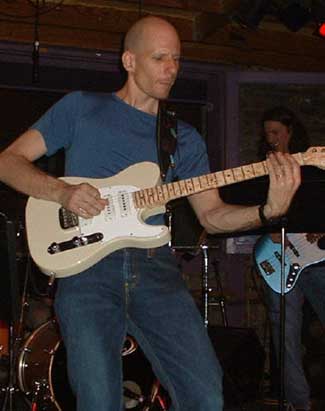 me how long I had been in town, to which I answered “I’ve been here for about six months.” He reacted with surprise, acknowledging my accomplishments with “Wow, that’s great. Six months and you’re already gigging.” He then added “I’m still working towards playing out, I’m not quite there yet, but I’m getting close. I’ve been in a couple of different bands so far, but nothing that’s made it out of the practice hall yet.” “How long have you been here?” I asked innocently. “Five years.” He answered and a deafening silence engulfed the moment.
me how long I had been in town, to which I answered “I’ve been here for about six months.” He reacted with surprise, acknowledging my accomplishments with “Wow, that’s great. Six months and you’re already gigging.” He then added “I’m still working towards playing out, I’m not quite there yet, but I’m getting close. I’ve been in a couple of different bands so far, but nothing that’s made it out of the practice hall yet.” “How long have you been here?” I asked innocently. “Five years.” He answered and a deafening silence engulfed the moment.
The stark reality that there are musicians trying to find their way in Nashville that are here for years had yet to stare me in the face with such clarity. It was almost as if an atomic bomb had been dropped right outside of the club. “I’m sorry to hear that, best of luck to you with that.” I mean, what else can you really say? A minute or so later we said goodbye, and the long-haired struggling stranger sauntered out the door.
For me, that moment clarified a lot of things. It made me realize that there are far more musicians here than there are opportunities for them. It reaffirmed some of the advice I had received from my mentor, D, one piece being “Whatever you do, don’t join a band, band’s starve.” It made me further appreciate the fact that I was lucky enough to have a mentor here in the first place. It allowed me to view all of my gigs and performance opportunities with much more optimism. And it made me realize, in a town where so many struggle, just how fortunate I had been so far.
It was the fall of 2002, I’d been in Nashville for a few months, and had just landed a weekend house gig at Libby’s Steakhouse in Kentucky, a great country music venue in which I could hone my chops. I was spending most of my days selling stuff on eBay, driving around to pawn shops looking for more stuff to sell on eBay, and practicing, practicing, practicing. My recent debacles on Broadway and at a recording studio on Music Row revealed to me that I had a lot of work to do, and this prompted me to get really organized about my practice regimen. While I was still going to downtown Nashville one or two nights a week to network, making the Tuesday night jam at the Fiddle and Steel a regular stop, these weekly outings on the town mainly served to build connections, not so much to sit-in. I needed to improve my country chops quite a bit before I would be comfortable enough to put myself out there on the chopping block again.
So every Friday around dinnertime I would set out for Daysville, Kentucky, sometimes accompanied by my wife, sometimes not. Each weekend outing at Libby’s would introduce me to new material, and I would obtain recordings of these songs to work on over the following week. In addition to learning these songs and other standards I heard around town, I was digging in hard to my technique in general, practicing country rhythm, chicken pickin’, Western swing and, to avoid losing any ground, a little rock, blues, and jazz as well. A friend of mine had given me a CD of some old-school country tele players, Bill Kirchen and Redd Volkaert aka the Twang Bangers, and I listened to and tried to mimic their lines, style, and feel. I also did the same with recordings of Alan Jackson that featured Brent Mason.
To create a challenging way to practice all these new techniques, I burned a mix CD comprised of several country, western swing, and bluegrass tunes. The 11 song guitar workout CD covered nine different keys, a variety of tempos, and several different feels (straight eighths, swing, etc).
|
Key |
Song |
Tempo/Feel |
|
D |
Goodhearted Woman |
slow eighths |
|
E |
Folsom Prison Blues |
medium eighths |
|
F |
Truck Drivin’ Man |
fast eighths |
|
Bb |
Chase Each Other Round the Room |
medium swing |
|
G |
How Mountain Girls Can Love |
fast eighths |
|
Ab |
Workingman Blues |
medium eighths |
|
A |
Poultry in Motion |
medium eighths |
|
G |
She Loves Anything |
fast eighths |
|
Bb |
White Lightning |
medium eighths |
|
B |
I Don’t Think Hank Done It This Way |
medium eighths (Waylon Stomp) |
|
F |
Quit Feelin’ Sorry |
medium swing |
Prior to moving to Nashville, I had never used the chicken pickin’ technique, and as it was the weakest link in my chain, it was the technique I practiced the most. This technique is a hybrid way of picking the strings on a guitar. Holding the pic between your thumb and first finger,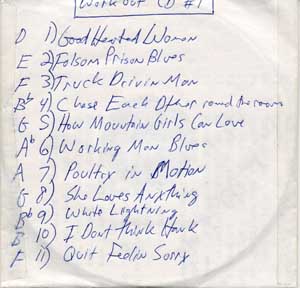 you alternate between picking the strings with the pic, and plucking the strings with either the third finger or second and third finger. This is also commonly referred to as “the claw”. Both rhythm and lead lines can be played with this technique, and practicing along with this CD, without pausing in between songs, somewhat emulated the pace and variations that might happen while performing with a live band.
you alternate between picking the strings with the pic, and plucking the strings with either the third finger or second and third finger. This is also commonly referred to as “the claw”. Both rhythm and lead lines can be played with this technique, and practicing along with this CD, without pausing in between songs, somewhat emulated the pace and variations that might happen while performing with a live band.
Every day I worked diligently in my basement music room, practicing country music standards and technique. I would practice until my right hand felt like it was falling off, or until I felt like throwing my guitar through the window, always managing to stop just prior to either thing happening. My improvement was slow, but steady, and gradually the other players at my weekend gig began to notice. I would practice and do the eBay thing all week long, go downtown to network for a couple of evenings, and head off to Kentucky for the weekends.
Libby’s was a family kind of place with a relaxed atmosphere and served no alcohol. But this didn’t stop some of the band members, me occasionally included, from sneaking a beer or two out back before the shows and during breaks. Hey, we were playing country music at a steakhouse in Kentucky; I don’t think Merle or Hank would disapprove. In all fairness to Libby, who was trying to run this show as professionally as he could, everyone seemed to keep the Budweiser buzz to a dull roar, always making a strong performance the priority (okay, maybe a few times the steel player got a little too loopy and hacked a little). But Budweiser or not, we had a great time. The players and the guest singers always gave it their all, and the crowd, no matter how big or small, always showed appreciation.
I worked at Libby’s for about four or five months through that fall and winter and, in hindsight, it was the best thing that could have happened to me at that point in time. By early spring I felt ready to dig in full bore to the country scene in Nashville and gave my notice. Libby understood why I had to leave, thanked me for my time, and wished me luck.
A couple of years later I was gigging at Tootsies and ran into one of the girls who had been a regular guest singer at Libby’s. Sadly, she informed me that Libby had just passed away at the age of 65. We reminisced about what a great time we always had back in the day, and how much he had cared about music and people. Libby was a sweet old guy and had treated me with the utmost respect. He gave me a chance when I needed it. I will always look back on those days with fondness, and will be forever grateful to have known Libby Knight.
D – Goodhearted Woman slow eighths
E – Folsom Prison Blues medium eighths
F – Truck Drivin’ Man fast eighths
Bb – Chase Each Other Round the Room medium swing
G – How Mountain Girls Can Love fast eighths
Ab – Workingman Blues medium eighths
A – Poultry in Motion medium eighths
G – She Loves Anything fast eighths
Bb – White Lightning medium eighths
B – I Don’t Think Hank Done It This Way medium eighths (Waylon Stomp)
F – Quit Feelin’ Sorry medium swing
As my first summer in Nashville was drawing to a close, I was basically jobless, running out of savings, and fast realizing that I had a long way to go to become proficient at playing country music, a style that was quite new to me. For many newcomers to Nashville, sitting in, gigging, and networking around town can make you feel like you are under a microscope, as was also the case for me. I had converted the basement of my rented home in Gallatin into a studio where my daily ritual consisted of learning country standards and practicing my chicken pickin’ technique (I was also conducting an eBay campaign and gradually selling off everything I could stand parting with). But all this practicing alone wasn’t enough. I needed some practical live experience but, after my recent debacle on Broadway, needed to accomplish this outside of the microscope for a bit. So when I got a phone call from Gordon, a keyboard player I had recently met, about playing in a house band for a country music talent show in Kentucky, I jumped at the offer.
Libby Knight, owner of Libby’s Steakhouse in Daysville, Kentucky, had been a longtime supporter of country music, hosting his talent show “Live at Libby’s” since 1984. During the show’s heyday there was a live radio broadcast, and it was from this venue that many singers like Garth Brooks, Tracy Lawrence, JoDee Messina, Trisha Yearwood, and others once performed in obscurity, some, arguably getting their start there (it is rumored that at one time record deals for some artists began to take shape in the front lobby). The boom days of this once would-be Opry style country music house now long gone, this was the perfect low-pressure opportunity I needed to hone my country chops.
During my phone call with Gordon, he explained to me that the Friday night show was an audition night for singers. Libby would pick the best vocalists to come back and rehearse with the band Saturday afternoon from 1 to 4, after which the band would be provided a dinner followed by the Saturday night concert from 8 to 11. For our services, each band member would receive $100 total for both nights. While this was not the greatest pay, I didn’t mind as I greatly needed the experience. Not to mention that a hundred dollars was a lot more than I was earning on most weekends at this point in time, which was typically nothing. Of course my first weekend at Libby’s was an audition for me as well. I had already done a gig with Gordon and he liked my playing, but the band leader had yet to hear my playing and I would have to win him over to be offered a regular spot.
I left Gallatin late in the afternoon on a Friday to make the hour and a half drive north into Kentucky. The scenic drive was mesmerizing at times as I found my way through a maze of picturesque back roads laced with cornfields, cattle grazing across rolling pastures, and the occasional small town. I arrived to the rural community of Daysville and pulled into Libby’s, a long barnlike structure that sat adjacent to a large field and reeked of another era. After loading in my gear and meeting Libby and the other musicians, I went over to a long row of tables at which several of the players had gathered, organizing their charts. “We’ve got charts for pretty much everything we’ll be playing.” said Gordon “Here’s a set list that shows the order of the singers, and the songs they’ll be doing.” I grabbed my charts, put them in order, and got ready to play.
Libby was a colorful character, upbeat and generally excited about these events, and this enthusiasm was evident a little while later when the show began with his announcements. Well dressed in a white shirt, Wrangler jeans, cowboy boots, and 10 gallon hat, he spoke from side stage with a deep resonant voice infested with a thick southern drawl and introduced the show as if it were the Grand Ole’ Opry. He disappeared behind the curtain while the audience was still applauding and we were off and running. After the first two songs, which featured the house band, he returned to announce the first vocalist to audition. We began playing the intro to ‘Walkin’ After Midnight’ as he walked off and an attractive young lady dressed for success walked onto the stage and saddled up to the mic. The band, which was comprised of some great players, was instantly cookin’, the young lady sang well, and the song was well received. Libby returned to the stage to rally some more support from the crowd and announced the next singer.
The material we played throughout the night was a mix of classic and new country, and the Nashville style number charts were of immense help. Some of these songs I knew, many I had heard but never played, and some were completely foreign to my ears. For the songs that required a lead guitar intro that I didn’t know, the bass player helped me out by humming the phrase right before the count off. All in all, I played well, enjoyed playing with the other musicians and singers (maybe not all of the singers), and everyone seemed to like my playing. We played two long sets with this format which had a surprisingly smooth flow, largely due to Libby and the band leader’s organization, and the night came to an end.
I returned the next afternoon for the rehearsal and ran through tunes with the best singers chosen from the night before. Each singer was allotted two songs for Saturday night’s show, so we spent much of this time learning songs we hadn’t played the night before. The rehearsal was kind of long, but the atmosphere was relaxed. We broke for dinner, a feast which consisted of your choice of one of Libby’s famous steaks or fried catfish with sides of baked potato, hush puppies, coleslaw, and sweet tea – a Southern delight. Making the mistake of over-eating, or perhaps just underestimating the fat content of this meal, I felt a bit “heavy” after dinner so I attempted to walk some of it off in the parking lot before the show.
A little while later I was back at the “chart table” with the other players organizing my stack of charts for the night. At eight o’clock sharp we were off and running after another excited send-off from Libby. Similarly to the night before, everything went real smooth. Vocalist after vocalist took the stage – young ladies sporting big hairdo’s and dressed in evening gowns, men clad in jeans, plaid shirts and cowboy hats, a couple of teenage prodigy’s – even an elderly gentleman in his 60’s sang country classics giving it their all. The crowd was attentive and even sang and clapped along at times. Adding an element of showbiz to the night, Libby would walk out from behind the curtain every once in a while and raise his arms in the air to incite additional applause after modulations and solos.
Just as we did the night before, the band played great, and most of the singers were excellent. The afternoon rehearsal allowed the band and singers to become comfortable with the material and really dig in during the show. Nothing like the helter-skelter nature of the in-town Nashville club scene, this gig was relaxed and outside of the microscope, but still had a professional edge.
I left the gig in good spirits and made the long drive home. It would be a little while before I was asked to return as I was subbing and the other lead player had not yet made a permanent exit, but a few weeks later I was asked to become a permanent member of the house band. I had passed the audition and landed what turned out to be the perfect gig for me to hone my country chops. Live at Libby’s – country music basic training!
